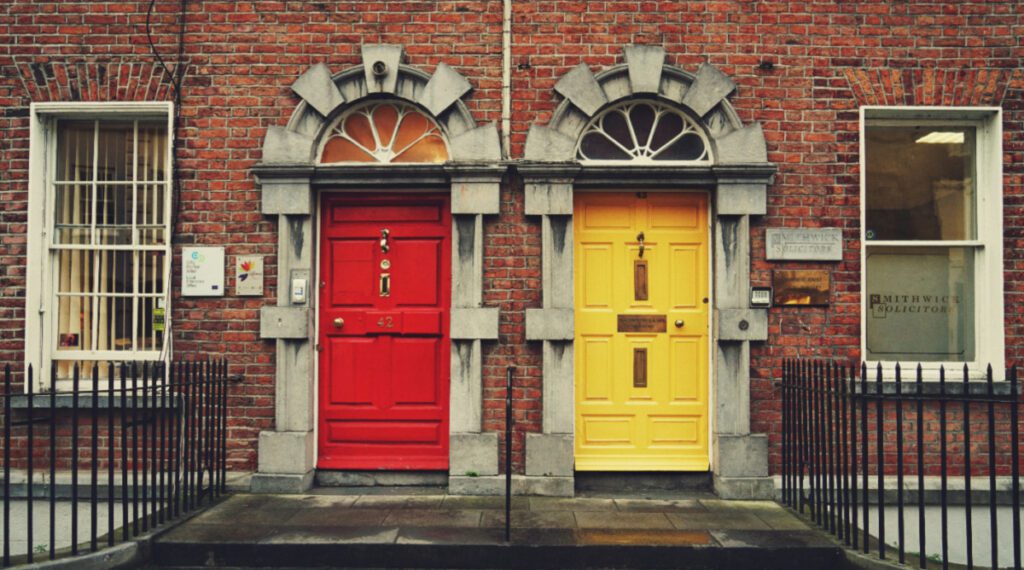I awake each morning with the greatest intention to change for the better; to try and be more loving; to ‘get over myself’. By lunchtime, I’ve forgotten all about it. I am tired of my attitudes, opinions, and fears, yet these rule over me like a cruel dictator. I have a desire for something but I don’t know what that ‘something’ is. I do know it has to do with God. I could term it ‘growth’ but I don’t know what growth in faith looks like.
This is often the state of the soul who enters into the Spiritual Exercises of St. Ignatius of Loyola. Ignatius compiled his Spiritual Exercises drawing from his own experiences and all that God taught him. Our loving Father in Heaven opened his eyes to how He, as Creator, is, was and will forever be the origin of all life and is always anterior to it. God’s life radiates giving us existence and, by His power, draws all people back to Himself in the end. Important to Ignatius and to us is that God’s creative power is here-and-now always active in the world and directed to bringing people to salvation. He is always laboring for and in us. It is God’s desire, and Ignatius’, for us to learn to live deeply in this love of His.
That ongoing gift of being to us means that, in every moment of every breath, we have opportunity to love Him. It is moment-to-moment metanoia—conversion—that we continue to seek Him now so as to be with Him for eternity. But the baptized and confirmed Christian is called to more than this. We are called to take part in His ‘project’ which is to bring all of mankind to salvation through Jesus Christ. To do so, we must always place our own relationship with God as our first priority, for how can we bring people into this relationship if we do not have it ourselves?
For this purpose, He has given us authentic desires deep within our soul that are to propel us to seeking and desiring His truth and goodness. The problem is that our souls are warped by concupiscence inclining us to the bad, plus generational tendencies passed down to us, harm done to us by others, and harm we cause ourselves especially when we harm others (for the damage done to another damages our soul too). God wants to heal us of all this but asks us to cooperate with His grace.
To choose Christ in the moment, to do His Divine will in the day, this is how we participate in His project to save souls. The more we give up desiring anything but Him, overcoming the self-centeredness inherent in us all, we are transformed into an attitude of holy indifference. It is a singularity of focus on God such that nothing else matters: health vs. illness, poverty vs. wealth, etc. An important part of this process of transformation is understanding our role in living harmoniously with all of the cosmos, taking from it only that needed to love and serve God, no more and no less. The polarized thinking that the world has formed in us dissipates. Wealth, poverty, illness, and health are neither good nor bad. What determines their goodness or badness is our intent and use of these.
This brings us to the Principle and Foundation (P&F). Although he wrote this last, Ignatius put it at the beginning of the exercises. It represents the person living in true interior freedom as well as instructs us in the means for attaining this. It is the foundation for living the Christian life and thus foundational to the Exercises. If a retreatant completes the Exercises without an understanding of the P&F and a desire to try living it, then he/she has missed the whole point to the exercises (Tetlow, p. 201).
PRINCIPLE AND FOUNDATION
Man is created to praise, reverence, and serve God our Lord, and by this means to save his soul.
And the other things on the face of the earth are created for man and that they may help him in prosecuting the end for which he is created.
From this it follows that man is to use them as much as they help him on to his end, and ought to rid himself of them so far as they hinder him as to it.
For this it is necessary to make ourselves indifferent to all created things in all that is allowed to the choice of our free will and is not prohibited to it; so that, on our part, we want not health rather than sickness, riches rather than poverty, honor rather than dishonor, long rather than short life, and so in all the rest; desiring and choosing only what is most conducive for us to the end for which we are created.
Wow, that’s a tall order! Remember, this is the work of a lifetime. However, the great peace of a life illuminated by the Holy Spirit comes from keeping this as our goal and benchmark. At first glance, it seems a bit complicated. However, it is in essence the principle of a Christian life and the moral foundation in which it is lived. It is an attitude fundamental to the disciplined life needed for true virtue.
Taking it apart one piece at a time…
Why were we created?
For those raised with the Baltimore Catechism, the answer is to know, love, and serve God in this world and be happy with Him forever in Heaven. First created in 1885, the Baltimore Catechism drew from the catechism written by St. Robert Bellarmine, an early 16th-century Jesuit. We shouldn’t be surprised, then, that underlying Bellarmine’s work is that of Ignatius, whose P&F states: “Man is created to praise, reverence, and serve God our Lord, and by this means to save his soul.” This purpose of our creation is also the end for which we’ve been created: praising God in Heaven for eternity. We were created out of nothing; God lost nothing in creating us nor does He gain anything. He created us out of love to be loved because He is love. We gain everything.
Why are other things created?
To live in this love, we ‘simply’ must follow His will—easier said than done! But He will always and only lead us to that which is truly good for us and all of creation. He rewards us now with experiences of His love, whether it be His direct consolations into our soul, or His love shared with us through others in our life, or the beauty of a hummingbird quickly flitting by. To do this, God has placed ‘things’ in our life. This is not only the air, water, trees, animals, and other forms of nature. It is more than man-made things such as cars, houses, and clothing. ‘Things’ are more than the tangible objects which we can possess. For the purpose of aiding us in becoming holy, He also places or permits into our life people, places, circumstances, experiences, thoughts and desires, even pain and pleasure. While God did not create nor cause evil and harm, He permits these to the extent that, with His grace, we can grow closer to Him by overcoming its effects.
How do we attain this holy indifference?
As explained by Servant of God Fr. John Hardon, God has placed within our lives four types of ‘creatures’ (persons, places, and objects): those for us to enjoy, others for us to endure, some for us to be rid of, and some to be sacrificed for Him (p. 27). God wants us to enjoy heartfelt fellowship with others. But when this socializing takes place in environments not conducive to virtue, involves cynicism, gossip, profanity, immorality, brings about excessive or otherwise ungodly behavior, leaves us with a prideful rather than humble attitude, or wastes our time, we must be rid of it. He wants us to endure suffering through some difficult but necessary relationships, physical circumstances, and even spiritual dryness, keeping in mind Jesus is always with us in the suffering. And He wants us to be willing to sacrifice things that aren’t bad and even are good but are not necessary to our relationship with Him; this sacrifice is done out of love for Him. All of this is, of course, impossible for any human to do on their own! Our loving Father gives us all the grace necessary as long as we ask Him.
Despite the chaos around us, when we live the P&F we live in the order God created. Thus, even within the disorder of the world, there is order. The world can rail against God’s orderly design but it cannot eliminate it. Divine order will always exist until Jesus’ final coming at the end of time. Each moment of our life is an opportunity to step into this reality. When living a life in intimacy with God, His love inspires one to do everything possible to return that love to Him and share it with others. That is the nature of love; it must share itself. It is this attitude of holy indifference, formed by living the P&F, that brings the retreatant to a manner of living their everyday life in a deeper loving relationship with God. While the Spiritual Exercises retreat eventually comes to an end, the Holy Spirit continues to teach, lead, and form the retreatant into love of God that is never-ending.
All for the greater glory of God!
————————–
The P&F, and references to specific sections of the Exercises, are adapted from The Spiritual Exercises of St. Ignatius of Loyola. Rev. Elder Mullen, transl. (1914) P. J. Kennedy & Sons.
Instructions on the Spiritual Exercises are taken from On giving the spiritual exercises: the early Jesuit manuscript directories and the official directory of 1599. Martin Palmer, ed. (1996) The Institute of Jesuit Sources.
References to the teachings of Fr. John Hardon come from Retreat with the Lord (1993) Servant Publications.
Insights from Fr. Joseph Tetlow are drawn from Choosing Christ in the World (1999) The Institute of Jesuit Sources.
__________________
Image: Unsplash





